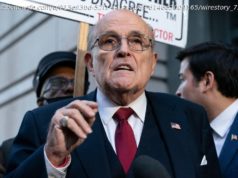Array
A couple of months ago I was in a fascinating conversation with a Catholic colleague regarding the papacies of Pope Benedict XVI and Pope Francis, here in the ninth year of this curious era, 2013-22, when the world was living with, in effect, two popes of sorts, a reigning pope named Francis and a resigned pope — a “Pope Emeritus” — named Benedict XVI. We were wondering if the latter would, ironically, ultimately outlive the former, who few expected to have a papacy this long. When Francis’ papacy started in 2013, he was already known for poor health, which has progressively gotten worse.
Indeed, my good friend and colleague John Gizzi at Newsmax reported this time last year (December 2021) that Vatican officials were expecting the death of Francis in 2022. That was not an unreasonable expectation.
Well, here we are, New Year’s Eve 2022, and Pope Francis is heading into the tenth year of his papacy, and with no questions remaining about whether the world lives under the confusing situation of “two popes.”
Pope Emeritus Benedict XVI died at 9:34 a.m. Rome time at age 95.
But confusion still reigns. It started when Pope Benedict baffled the world by resigning on February 11, 2013. His resignation, the first of a pope in six centuries (since Gregory XII in 1415), gave rise to the papacy of Jorge Bergoglio, which has been a papacy that has sowed a vast sea of confusion among the faithful and even non-faithful who no longer can look to the Holy See for the consistency it has been renowned for. It was a papacy that I used to frequently defend, including in a lengthy piece for Crisis Magazine in March 2019, but which I can no longer defend given Francis’ unending stream of mixed signals and contradictions and outright outrages. Pope Francis’ papacy, I regret to concede, has been a disaster. At a time when the world has desperately needed a papacy of clarity, which it had under Benedict, it has gotten a papacy of chaos.
My friend and I back in October talked about that and about the growing phenomenon of conservative Catholics who loved Benedict now bitterly blaming him for the chaos of Francis. After all, it was Benedict who resigned and hence made Francis possible.
Point taken. But it is also true that we mere mortals have no idea of precisely the reasons why Benedict stepped down in February 2013. He was an extraordinarily thoughtful, theological, prayerful, humble, and plainly brilliant man. Only he and God alone knew his full reasoning. Perhaps the man had some sort of private revelation that prompted his action.
That said, we do know this: lighting literally struck the Vatican twice just hours after Benedict resigned. Was this a sign of heavenly disapproval? Perhaps a signal from above of the chaos to come? Surely this was a troubling sign of some sort.
Truly, only God knows.
I’ve been asked many times at various points since Cardinal Joseph Ratzinger became pope in April 2005 to offer my assessment of the man. To me, what will always stand out the most — aside from his resignation and those striking thunderbolts — was his opening statement just prior to being chosen pope.
In his final homily after the death of John Paul II, given just before the College of Cardinals convened, Cardinal Ratzinger called out a “dictatorship of relativism.” What prompted those words were the readings that day, April 18, 2005. He was quoting Ephesians 4:14, where St.






